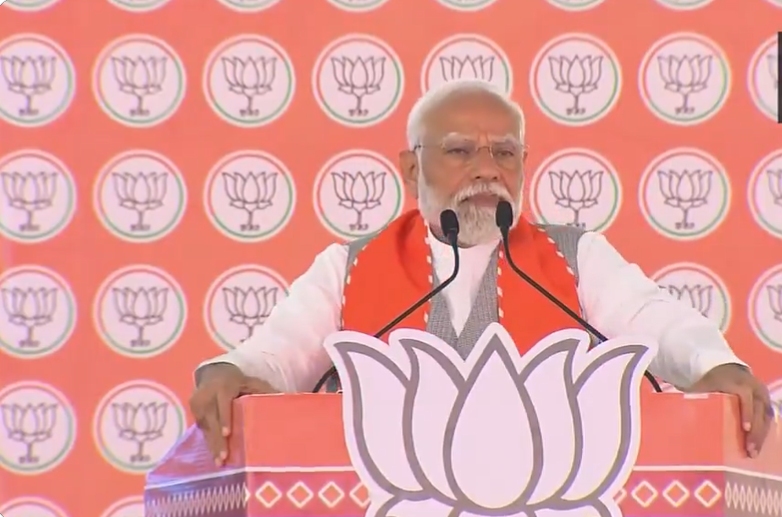Prime Minister Narendra Modi’s recent rally in Surendranagar, Gujarat, has injected a fresh wave of controversy into the political landscape, with his scathing accusations against the Congress party for allegedly stoking religious tensions among different Hindu faiths.
Addressing a fervent crowd, PM Modi took aim at the Congress, accusing it of attempting to sow discord by making divisive statements about revered Hindu deities. He singled out senior Congress leaders, citing remarks that he deemed detrimental to the unity of Hindu devotees, particularly those concerning Lord Ram and Lord Shiva.
Modi’s assertions struck a chord with his supporters, who echoed his concerns about the Congress’s alleged role in fostering religious polarization. However, critics viewed his remarks as an attempt to exploit religious sentiments for political gain, accusing him of engaging in divisive rhetoric.
The Prime Minister’s reference to recent comments made by a Congress leader, derisively referred to as ‘Shehzada,’ further intensified the controversy. By positioning the BJP as the protector of Hindu traditions, Modi sought to consolidate support among religiously inclined voters ahead of the upcoming elections.
These allegations come against the backdrop of a broader debate on religious tolerance and communal harmony in India’s political discourse. With elections on the horizon, political parties are increasingly vying for the support of different religious communities, raising questions about the role of religion in shaping electoral outcomes.
As the nation awaits the Congress party’s response to PM Modi’s accusations, speculation abounds about their potential impact on the electoral dynamics. Meanwhile, civil society groups and religious leaders have called for restraint and dialogue, emphasizing the importance of promoting mutual respect and understanding in a diverse society.
With religious politics taking center stage, the upcoming elections are poised to be a litmus test for India’s secular fabric. Whether PM Modi’s criticisms of the Congress will resonate with voters or deepen existing divisions remains to be seen, but one thing is clear: religion will continue to play a pivotal role in shaping the country’s political landscape in the days to come.



